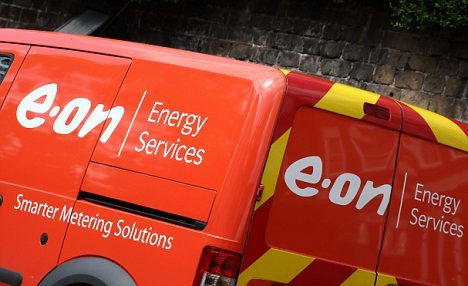
E.ON has signed an agreement with Australian property developer Lendlease to install a pioneering low-carbon, energy-sharing network based on its ‘ectogrid’ system at the Silvertown regeneration site in east London.
When completed, the project will be the largest space heating and cooling network in the UK – supplying more than 6,000 new homes and business properties on the 760,000 m² site – and the first installation of a low-temperature sharing network based around ground and air-source heat pumps.
A primary feature of the ectogrid technology is its use of AI and machine learning based software to balance available energy sources and demand across connected buildings – effectively enabling each building to send excess heating or cooling to others as needed.
It is predicted that the Silvertown network will save approximately 4,000 tonnes of CO2 a year, an emissions reduction of 88% compared with a traditional gas boiler fuelled system.
According to Tony Poole, head of heat networks development at E.ON, ectogrid is highly customisable – and also has the potential to use low-grade waste heat from nearby sources, such as data centres, refrigeration and industry.
“Ectogrid uses small, decentralised heat pumps within buildings, offering greater flexibility and scalability compared to centralised generation models,” Poole told Energy Voice. “Ectogrid stands out in the low-carbon energy sharing network landscape by prioritising what we call energy circularity,” he added.
“We only add new energy into the network when the potential for sharing has been completely used up. This reduces reliance on additional energy generation and minimises environmental impact. Ectogrid excels in areas with a balanced demand for heating and cooling. This allows for efficient energy exchange within the network, catering to mixed-use developments.”
Energy costs and the net zero imperative mean such technology looks set to attract increasing investment. Government guidance published in January 2024 estimates that low-carbon heat networks will need to supply 20% of the country’s heat requirements by 2050 to meet net zero goals.
Analysis by the Association for Decentralised Energy found that heat networks have the potential to attract £18 billion in capital investment for the Greater Manchester area alone.
Expansion plans
The Silvertown installation will be the UK’s first implementation of E.ON’s ectogrid system, but the company has ambitious plans for its expansion. As well as eyeing the potential for expanding the Silvertown network to other developments in the Royal Docks area of London, Poole revealed that the company is “actively working on a number of other opportunities across the UK to deploy ectogrid where conditions are favourable”.
Ideal conditions for investment, he explained, include a high concentration of potential users within a defined area (crucial for efficient heat distribution); access to existing “waste” heat sources such as power plants, data centres, refrigeration or industrial processes (to enhance the system’s sustainability and economic viability); and a mixed load of heating and cooling requirements – allowing for optimal energy exchange within the network.
“We work closely with potential partners to conduct a thorough feasibility study, considering factors such as energy demand, waste heat sources and infrastructure requirements,” said Poole. “This collaborative approach allows us to tailor the solution and determine the right investment structure.”
“While upfront costs are a consideration, ectogrid offers significant long-term value through operational efficiencies and reduced energy consumption. Our focus is on building partnerships that deliver sustainable and cost-effective heating and cooling solutions for the long haul.”
On the continent, E.ON is running a pilot network based on ectogrid at Medicon Village in Sweden, connecting 15 commercial properties and residential buildings in a system that is currently on track to reduce the initial 14 GWh of energy requirements to 3 GWh of supplied energy. Further ectogrid networks are planned for Italy and the Netherlands.
E.ON UK chief executive Chris Norbury described the Silvertown contract as a “huge milestone for UK developments”.
“It’s fantastic that we can bring this to life in such an iconic redevelopment area as the Royal Docks,” he said. “Making energy more affordable and sustainable is a critical element of growing the UK economy and it cannot be achieved without an ambition to deliver huge societal benefit too.”
